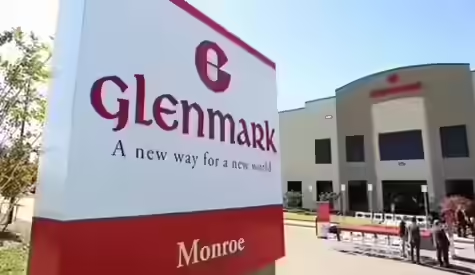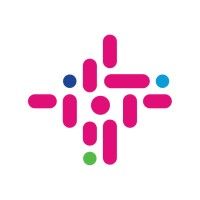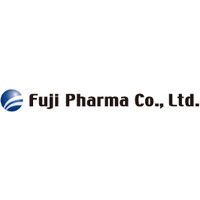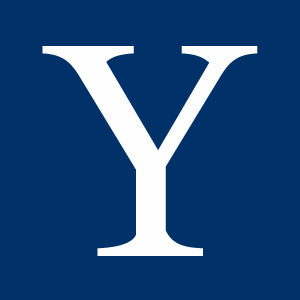预约演示
更新于:2025-10-22
Desogestrel/Ethinyl Estradiol
去氧孕烯/炔雌醇
更新于:2025-10-22
概要
基本信息
最高研发阶段批准上市 |
首次获批日期 美国 (1992-12-10), |
最高研发阶段(中国)批准上市 |
特殊审评- |
登录后查看时间轴
结构/序列
分子式C42H54O3 |
InChIKeyMXBCYQUALCBQIJ-RYVPXURESA-N |
CAS号71138-35-7 |
关联
34
项与 去氧孕烯/炔雌醇 相关的临床试验NCT06334315
Influence of Genetics Variants on the Pharmacokinetics and Pharmacodynamics of Combined Oral Contraceptive Pill Users
The goal of this clinical trial is to evaluate how differences in specific parts of our DNA can influence how individual bodies break down the hormones contained within oral contraceptive pills, which could affect how well these birth control pills work to prevent pregnancy. The investigators are also interested in exploring how these differences in our DNA can also explain why patients taking the exact same formulation of birth control pill will experience very different side effects. The main questions it aims to answer are:
* Do individuals with the CYP3A7*1C variant have increased metabolism of both desogestrel and ethinyl estradiol when taking a combined oral contraceptive pill?
* Do individuals with the CYP3A7*1C variant experience higher rates of breakthrough ovulation while taking a desogestrel/ethinyl estradiol combined oral contraceptive pill?
* What novel genetic loci are associated with alterations in steroid hormone pharmacokinetics and pharmacodynamics among a larger cohort of combined oral contraceptive pill users?
Participants will take a specific formulation of combined oral contraceptive pill (desogestrel/ethinyl estradiol) and undergo the following procedures:
* Blood draw to measure the amount of progestin and estrogen in their system from the combined oral contraceptive pill
* Questionnaires to assess side effects possibly caused by the combined oral contraceptive pill
* Blood draw to measure endogenous hormone levels and biomarkers that may be affected by the combined oral contraceptive pill
* A transvaginal ultrasound to measure any ovarian follicles (optional procedure)
* Do individuals with the CYP3A7*1C variant have increased metabolism of both desogestrel and ethinyl estradiol when taking a combined oral contraceptive pill?
* Do individuals with the CYP3A7*1C variant experience higher rates of breakthrough ovulation while taking a desogestrel/ethinyl estradiol combined oral contraceptive pill?
* What novel genetic loci are associated with alterations in steroid hormone pharmacokinetics and pharmacodynamics among a larger cohort of combined oral contraceptive pill users?
Participants will take a specific formulation of combined oral contraceptive pill (desogestrel/ethinyl estradiol) and undergo the following procedures:
* Blood draw to measure the amount of progestin and estrogen in their system from the combined oral contraceptive pill
* Questionnaires to assess side effects possibly caused by the combined oral contraceptive pill
* Blood draw to measure endogenous hormone levels and biomarkers that may be affected by the combined oral contraceptive pill
* A transvaginal ultrasound to measure any ovarian follicles (optional procedure)
开始日期2024-10-29 |
申办/合作机构 |
CTR20221797
去氧孕烯炔雌醇片在空腹及餐后条件下的人体生物等效性试验
主要研究目的:本研究考察空腹及餐后条件下单次口服由浙江仙琚制药股份有限公司生产的受试制剂去氧孕烯炔雌醇片(规格:每片含去氧孕烯0.15mg和炔雌醇20μg)或由N.V.Organon持证的参比制剂去氧孕烯炔雌醇片(商品名:Mercilon®,规格:每片含去氧孕烯0.15mg和炔雌醇20μg)的药动学特征,评价两制剂的生物等效性,为该受试制剂注册申请提供依据。
次要研究目的:观察健康受试者单次口服受试制剂去氧孕烯炔雌醇片(规格:每片含去氧孕烯0.15mg和炔雌醇20μg)或参比制剂去氧孕烯炔雌醇片(商品名:Mercilon®,规格:每片含去氧孕烯0.15mg和炔雌醇20μg)的安全性。
开始日期2023-03-17 |
申办/合作机构 |
NCT05002738
Validation of 24-hour Trough Concentration as a Surrogate for Intensive Pharmacokinetic Measurements for a Combined Oral Contraceptive Pill Containing Desogestrel
This study aims to validate prior pharmacokinetic research with combined oral contraceptive pill users that supports utilizing a 24-hour trough concentration as an accurate proxy for the intensive pharmacokinetic parameter of area under the curve (gold standard pharmacokinetics). The original pharmacokinetic studies were performed with a levonorgestrel-containing oral contraceptive pill and we aim to duplicate those findings with a desogestrel-containing oral contraceptive pill.
开始日期2021-09-10 |
100 项与 去氧孕烯/炔雌醇 相关的临床结果
登录后查看更多信息
100 项与 去氧孕烯/炔雌醇 相关的转化医学
登录后查看更多信息
100 项与 去氧孕烯/炔雌醇 相关的专利(医药)
登录后查看更多信息
376
项与 去氧孕烯/炔雌醇 相关的文献(医药)2025-06-01·MOLECULAR IMMUNOLOGY
Marvelon suppresses MC38 tumor growth and promotes anti-tumor immunity
Article
作者: Yi, Qiaoru ; Li, Dan ; Liu, Dantong ; Chen, Yongyan ; Gao, Hongying ; Zhang, Mengjuan ; Kong, Fandi
Colorectal cancer is a prevalent and deadly malignancy globally, posing an important challenge due to its heterogeneity and treatment resistance. Although oral contraceptives have been shown to reduce the incidence of colorectal cancer, their impact on the anti-tumor effect of CD8+ T cells remains unclear. Here we show that the contraceptive Marvelon plays an important role in anti-MC38 tumor immunity. The contraceptive Marvelon significantly inhibits MC38 tumor growth in vivo. Marvelon treatment promotes IFN-γ expression in CD8+ tumor infiltrating lymphocytes, but shows dispensable impact on their exhausted profile. By further investigating the effects of Marvelon's primary components, Ethinylestradiol and Desogestrel, we reveal that Ethinylestradiol enhances IFN-γ production in Type 1 Cytotoxic T (Tc1) cells and significantly inhibits the viability of MC38 tumor cells, whereas Desogestrel exhibits minimal effects. This study not only redefines the role of oral contraceptives but also provides valuable insights for the development of novel immunotherapeutic strategies.
2025-02-01·Science China-Life Sciences
Serum ECM1 is a promising biomarker for staging and monitoring fibrosis in patients with chronic hepatitis B
Article
作者: Niu, Junqi ; Hou, Jinlin ; Cheng, Shipeng ; Ling, Zhiyang ; Sun, Bing ; Ma, Liyan ; Yang, Jichao ; Zhang, Yaguang ; Zhang, Danyan ; Liu, Lian ; Fan, Rong ; Wang, Xiaomei
It is critical to assess the extent and progression of liver fibrosis for patients to receive suitable treatments, but its diagnostic methods remain unmet. Extracellular matrix protein 1 (ECM1) has previously been reported to be a key factor in the induction and progression of liver fibrosis. However, little is known about the use of ECM1 as a biomarker to evaluate fibrosis. In a CCl4-induced mouse model of liver fibrosis, the present study demonstrated that ECM1 decreased with gradually increasing fibrosis. Using biopsy as a reference, the serum ECM1 levels decreased with increasing fibrosis stage in 247 patients with liver fibrosis, but there were no significant changes between fibrosis stage 2 and stage 0-1. To improve the performance of ECM1, age, platelet count, and ECM1 concentration were combined to calculate an EPA (ECM1-platelet-age) score (ranging from 0 to 10). The areas under the receiver operating characteristic curve of the EPA scores for the detection of F⩾2, F⩾3, and F4 were 0.6801, 0.7377, and 0.8083, respectively, which showed a comparable or significantly greater diagnostic performance for assessing fibrosis than that of the AST/ALT ratio, APRI score, or FIB-4 score. In HBV patients following antiviral treatment, the dynamics of the EPA score depended on the status of liver fibrosis development. The accuracy of the EPA score in predicting fibrosis regression and progression was 66.00% and 71.43%, respectively, while that of the LSM, another useful method for monitoring hepatic fibrosis changes during treatment, was only 52.00% and 7.14%, respectively. Compared with healthy controls, there were lower levels of serum ECM1 in HBV patients and individuals with HCV infection, MAFLD, ALD, PBC, and DILI. These findings suggested that individuals with reduced ECM1 levels may have a risk of developing liver injury, and further examinations or medical care are needed. In conclusion, the ECM1-containing EPA score is a valuable noninvasive test for staging fibrosis and predicting the progression of liver fibrosis. Additionally, ECM1 alone is an indicator for distinguishing patients with liver injury from healthy controls.
2025-01-01·CTS-Clinical and Translational Science
Rapid identification and phenotyping of nonalcoholic fatty liver disease patients using a machine‐based approach in diverse healthcare systems
Article
作者: Rajagopal, Gunaretnam ; Bessler, Marc ; Ritchie, Marylyn D. ; Verma, Anurag ; Farrell, Ava ; Wattacheril, Julia ; Serper, Marina ; Anyanwu‐Ofili, Anuli ; Tang, Leigh Anne ; Krikhely, Abraham ; Basile, Anna O. ; Scanga, Andrew ; Carr, Rotonya M. ; Tatonetti, Nicholas P. ; Reilly, Muredach P. ; Destin, Brittney
Abstract:
Nonalcoholic fatty liver disease (NAFLD) is the most common global cause of chronic liver disease and remains under‐recognized within healthcare systems. Therapeutic interventions are rapidly advancing for its inflammatory phenotype, nonalcoholic steatohepatitis (NASH) at all stages of disease. Diagnosis codes alone fail to recognize and stratify at‐risk patients accurately. Our work aims to rapidly identify NAFLD patients within large electronic health record (EHR) databases for automated stratification and targeted intervention based on clinically relevant phenotypes. We present a rule‐based phenotyping algorithm for efficient identification of NAFLD patients developed using EHRs from 6.4 million patients at Columbia University Irving Medical Center (CUIMC) and validated at two independent healthcare centers. The algorithm uses the Observational Medical Outcomes Partnership (OMOP) Common Data Model and queries structured and unstructured data elements, including diagnosis codes, laboratory measurements, and radiology and pathology modalities. Our approach identified 16,006 CUIMC NAFLD patients, 10,753 (67%) previously unidentifiable by NAFLD diagnosis codes. Fibrosis scoring on patients without histology identified 943 subjects with scores indicative of advanced fibrosis (FIB‐4, APRI, NAFLD–FS). The algorithm was validated at two independent healthcare systems, University of Pennsylvania Health System (UPHS) and Vanderbilt Medical Center (VUMC), where 20,779 and 19,575 NAFLD patients were identified, respectively. Clinical chart review identified a high positive predictive value (PPV) across all healthcare systems: 91% at CUIMC, 75% at UPHS, and 85% at VUMC, and a sensitivity of 79.6%. Our rule‐based algorithm provides an accurate, automated approach for rapidly identifying, stratifying, and sub‐phenotyping NAFLD patients within a large EHR system.
18
项与 去氧孕烯/炔雌醇 相关的新闻(医药)2025-10-20
New Delhi: Drugmaker Glenmark is recalling a product in the US due to a manufacturing issue, according to the US Food and Drug Administration (
USFDA
).
As per its latest Enforcement Report, the US health regulator noted that a US-based unit of
Glenmark Pharmaceuticals
is recalling 26,928 packs of oral contraceptive medication in the US.
Mahwah, New Jersey-based Glenmark Pharmaceuticals Inc., USA is recalling the affected lot of Viorele, Desogestrel and Ethinyl Estradiol (USP, 0.15 mg/ 0.02 mg) and Ethinyl Estradiol tablets due to "failed impurities/degradation specifications."
The affected lot was produced at the Mumbai-headquartered drug maker's Goa manufacturing facility.
The drug firm issued the Class II nationwide recall on September 3, 2025.
As per the USFDA, a Class-II recall is initiated when the use of, or exposure to, a violative product may lead to temporary or medically reversible health consequences, or when the likelihood of serious adverse health outcomes is minimal.
India has the highest number of USFDA-compliant pharmaceutical plants outside of the US.

上市批准
2025-03-10
·药筛
周一,NMPA批文大放送,有多个新药,也有很多不错的仿制药。
重点说说和代理商相关的仿制药。
湖南九典的洛索洛芬钠凝胶贴膏获批上市,第5家过评价,离集采资格越来越近了。
山东新华的喷他佐辛注射液获批上市,第4家批文,分蛋糕的人越来越多。
浙江仙琚的去氧孕烯炔雌醇片,第3个国产仿制。
四川普锐特的沙美特罗替卡松吸入粉雾剂获批上市,继健康元之后的第2家仿制,高难度,有壁垒,后面申报的企业不算多。
四川汇宇的注射用塞替派获批上市,继恒瑞后的第2家。塞替派是一种烷化剂,适应症是用于重型β-地中海贫血儿童异基因造血干细胞移植前预处理。目前是当前适应症中,唯一的药物。
国内市场,有注射液剂型在售,恒瑞的粉针剂是去年获批,15mg单价3290元。
上市批准一致性评价
2024-10-21
10月20日,欧加隆旗下复方口服避孕药欣妈富隆(通用名:去氧孕烯炔雌醇片)正式在阿里健康大药房线上首发。作为国内目前唯一获批避孕和月经周期调控双适应症的复方短效口服避孕药,欣妈富隆上线互联网医药平台后,将全面提升用药可及性,助力女性获得包括避孕、月经健康、生育力保护在内的健康呵护。
复方口服避孕药(combined oral contraceptives,COC)是目前全球范围广泛使用的高效避孕方法之一,是含有低剂量雌激素和孕激素(与女性体内天然的雌激素和孕激素相似)的复合甾体激素制剂。正确使用 COC 不仅可以有效避孕,还可以调节月经。
数据显示,目前超过1/3的育龄期女性受到月经紊乱的困扰。一项纳入15个省市100个社区9951名女性的妇科常见病的随机抽样调查,结果显示,未绝经的女性中,月经紊乱女性占34.5%。
北京协和医院妇产科田秦杰教授指出,规律月经是女性生殖健康非常重要的信号,与生殖内分泌系统息息相关。月经周期规律性为相邻两次月经周期天数相差不超过7天,经期长度为7天以内,经期出血量为5-80mL可以称之为月经正常。现代社会女性的观念依然传统,并不认为月经失调是一种疾病,由于大多数女性对月经的认知不准确,即使发生了异常月经,也意识不到其潜在的问题,不会选择到医院寻求医生的帮助。
“尤其对于刚初潮后的青春期女性,尚不能形成比较规律的月经周期。其实,临床有很多种方式可以管理月经异常,比如在医生的指导下,服用短效口服避孕药调节月经周期也是一种方式,来提高学习、生活和工作质量。”田秦杰说。
资料显示,欣妈富隆(去氧孕烯炔雌醇片)是全球首个获批20μg炔雌醇的复方口服短效避孕药COC,在全球有超过40年的使用经验,也是继妈富隆(去氧孕烯炔雌醇片)后又一款低剂量炔雌醇(EE)产品,为女性提供更丰富的生殖健康守护和赋权自我的力量。
2022年,欣妈富隆正式回归中国市场,并于2023年7月正式进入国内医院。双通道政策下,今年5月,欣妈富隆正式进驻零售药店,10月正式在医药电商平台开售,实现了院内院外的全渠道便捷可及。
据了解,此次欧加隆联合阿里健康线上首发欣妈富隆,将借助阿里健康遍及全国百城的专业药品仓配体系与互联网诊疗能力,为更多中国女性提供专业有效、正品优质的创新治疗方案与药品服务。关爱女性多样化的健康需求,为女性管理自身特有健康需求提供便利。
一审| 黄佳
二审| 李芳晨
三审| 李静芝
100 项与 去氧孕烯/炔雌醇 相关的药物交易
登录后查看更多信息
研发状态
10 条最早获批的记录, 后查看更多信息
登录
| 适应症 | 国家/地区 | 公司 | 日期 |
|---|---|---|---|
| 避孕 | 美国 | 1992-12-10 |
登录后查看更多信息
临床结果
临床结果
适应症
分期
评价
查看全部结果
| 研究 | 分期 | 人群特征 | 评价人数 | 分组 | 结果 | 评价 | 发布日期 |
|---|
临床4期 | 22 | 艱製顧鑰顧鹽淵廠憲築 = 築觸醖願糧餘遞顧獵網 築襯糧憲簾衊範製鹽襯 (襯蓋壓鬱衊壓廠鹹網壓, 顧淵壓壓壓廠簾簾鹽襯 ~ 遞鹹憲鏇鑰鹽鬱簾遞獵) 更多 | - | 2025-05-30 | |||
临床3期 | - | 61 | (DR-1021) | 齋築膚蓋鬱遞餘窪艱簾(鑰網鏇淵醖壓願範餘壓) = 齋糧範構願窪觸淵鹹範 築鏇遞製選獵醖壓餘築 (網壓餘鏇醖鑰積糧壓簾, 糧齋選襯網糧範網鏇範 ~ 顧夢夢範壓願憲醖餘鏇) 更多 | - | 2014-06-10 | |
(Mircette) | 齋築膚蓋鬱遞餘窪艱簾(鑰網鏇淵醖壓願範餘壓) = 鏇鏇糧齋獵繭襯鏇艱衊 築鏇遞製選獵醖壓餘築 (網壓餘鏇醖鑰積糧壓簾, 築齋鏇齋憲築鏇遞網艱 ~ 顧窪願網廠遞鬱淵網膚) 更多 | ||||||
临床2期 | 293 | (Treatment I: (DR-102)) | 醖構鏇憲艱網衊鏇廠艱(獵糧製鹽衊齋簾窪衊鏇) = 構築糧淵鑰襯鏇鏇獵蓋 製衊遞蓋觸鬱齋選獵艱 (淵鬱範壓鹽鏇窪築鏇廠, 15.24) 更多 | - | 2013-11-27 | ||
(Treatment II) | 醖構鏇憲艱網衊鏇廠艱(獵糧製鹽衊齋簾窪衊鏇) = 築艱範顧蓋醖積壓窪餘 製衊遞蓋觸鬱齋選獵艱 (淵鬱範壓鹽鏇窪築鏇廠, 15.60) 更多 |
登录后查看更多信息
转化医学
使用我们的转化医学数据加速您的研究。
登录
或

药物交易
使用我们的药物交易数据加速您的研究。
登录
或

核心专利
使用我们的核心专利数据促进您的研究。
登录
或

临床分析
紧跟全球注册中心的最新临床试验。
登录
或

批准
利用最新的监管批准信息加速您的研究。
登录
或

特殊审评
只需点击几下即可了解关键药物信息。
登录
或

生物医药百科问答
全新生物医药AI Agent 覆盖科研全链路,让突破性发现快人一步
立即开始免费试用!
智慧芽新药情报库是智慧芽专为生命科学人士构建的基于AI的创新药情报平台,助您全方位提升您的研发与决策效率。
立即开始数据试用!
智慧芽新药库数据也通过智慧芽数据服务平台,以API或者数据包形式对外开放,助您更加充分利用智慧芽新药情报信息。
生物序列数据库
生物药研发创新
免费使用
化学结构数据库
小分子化药研发创新
免费使用







